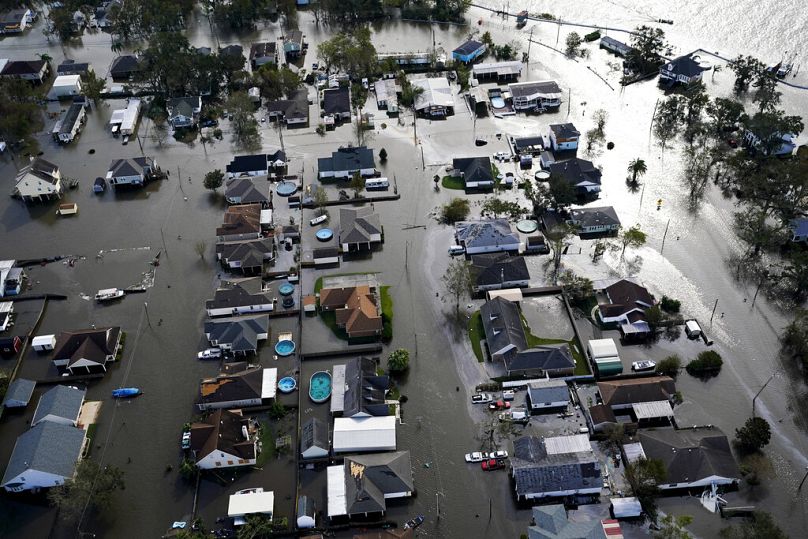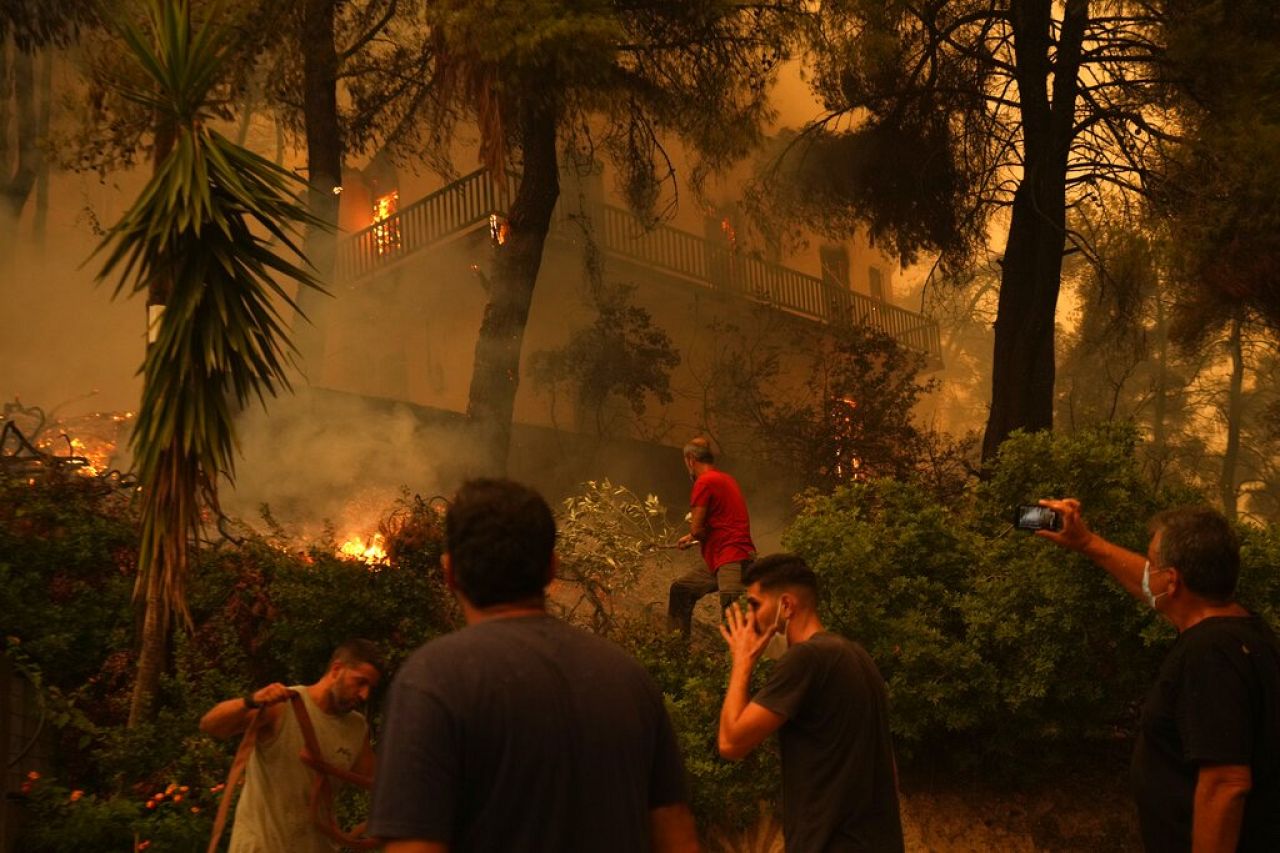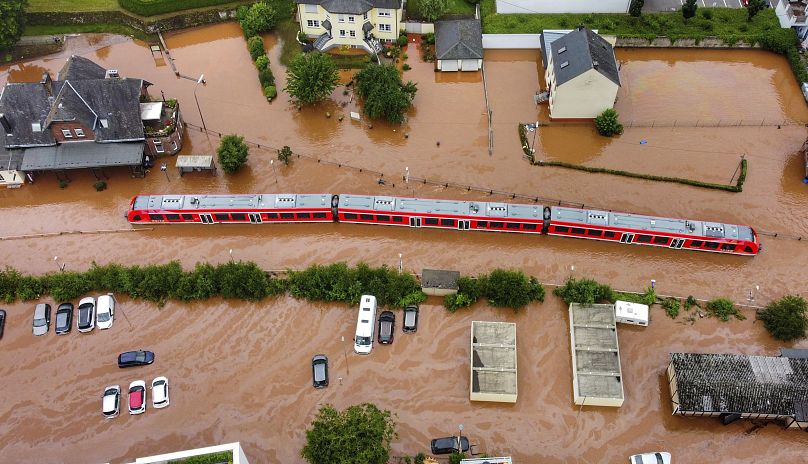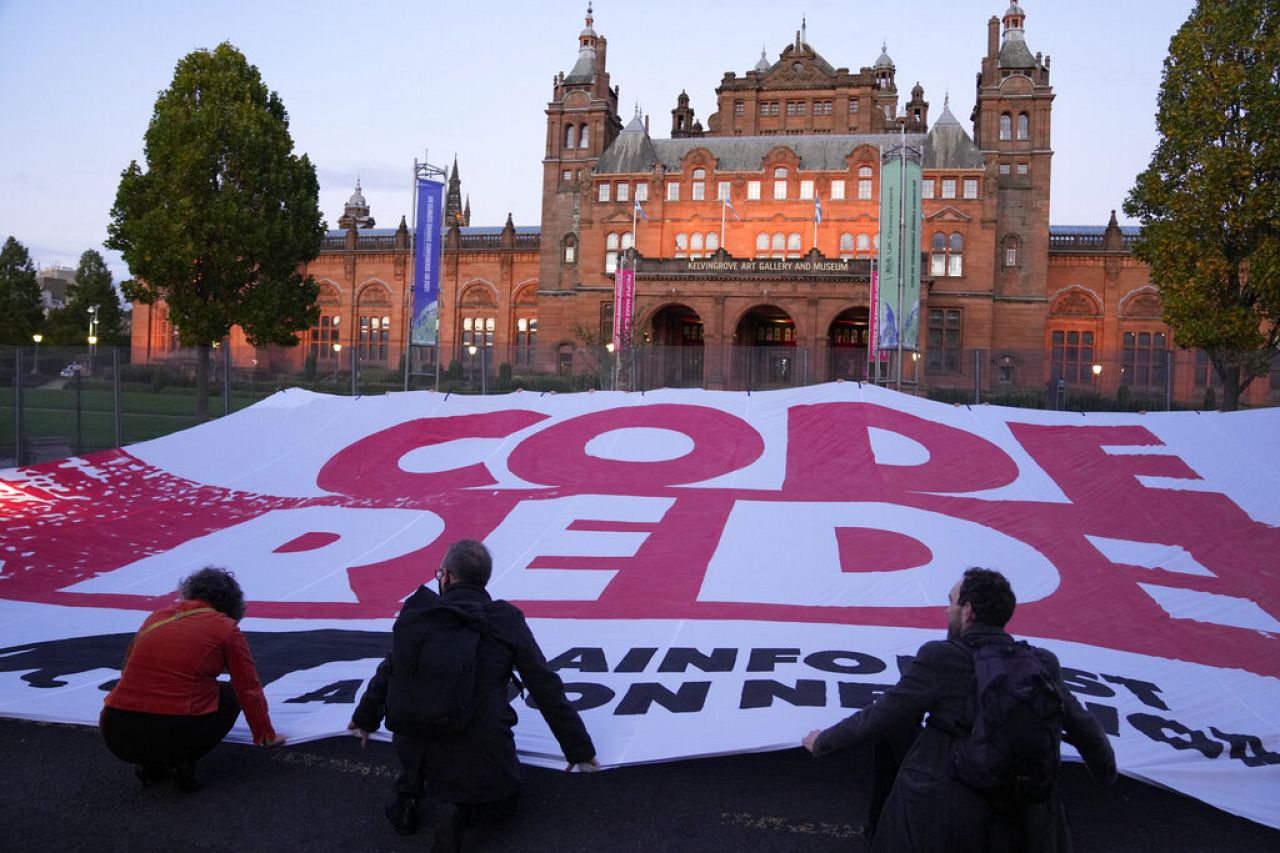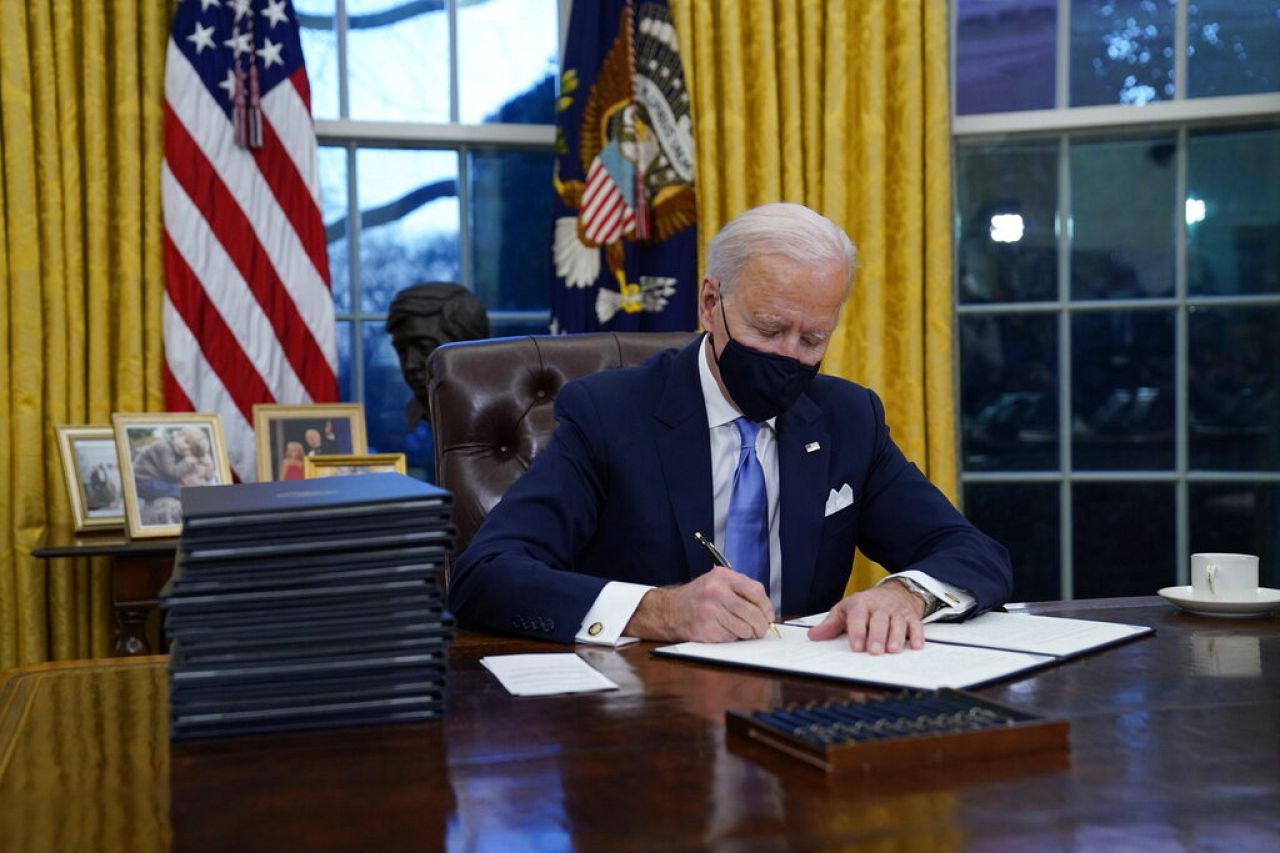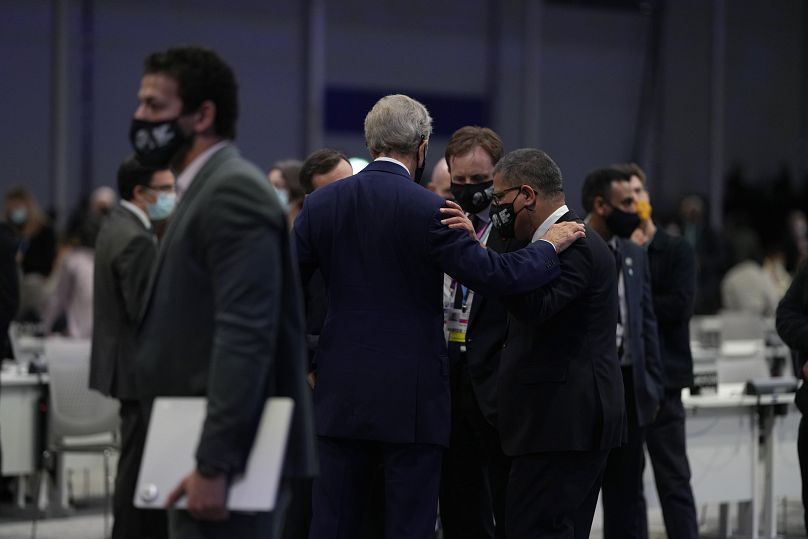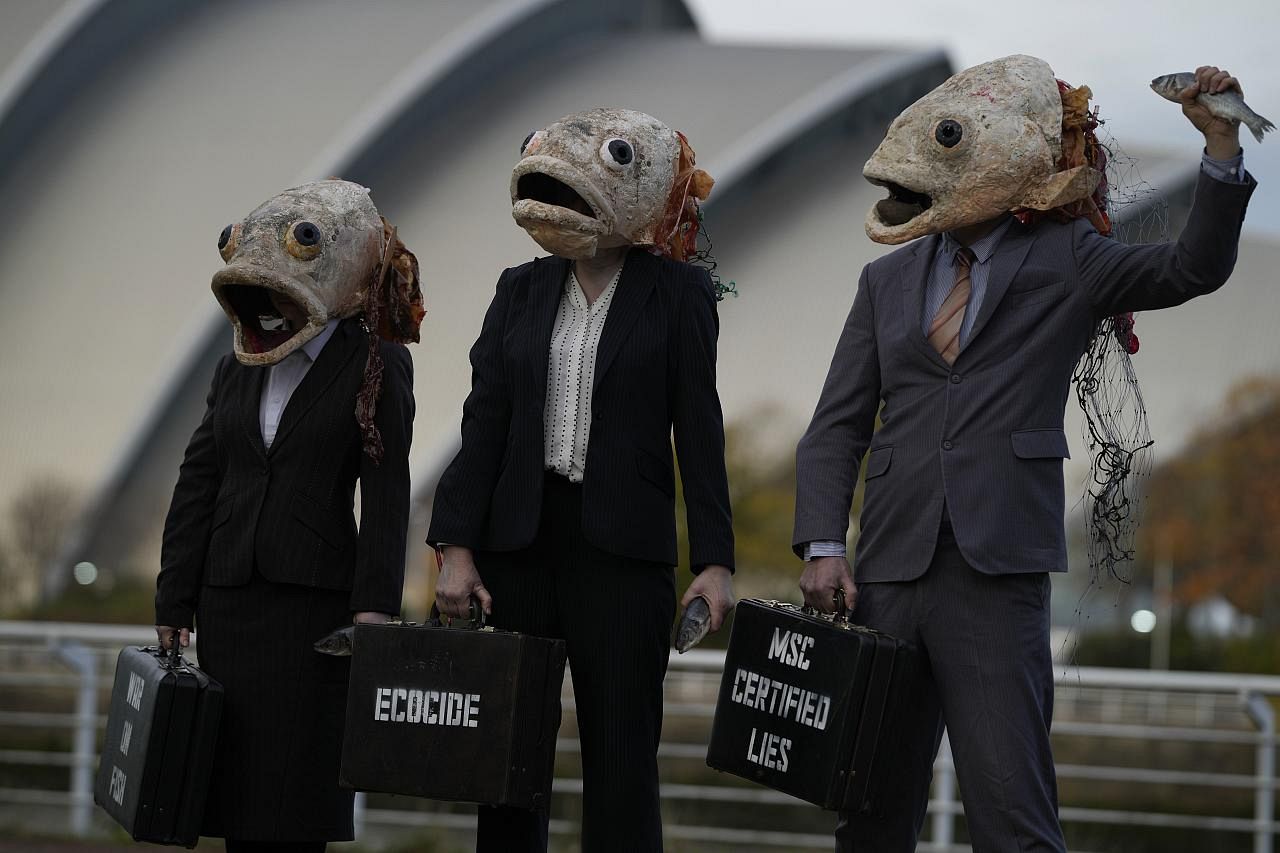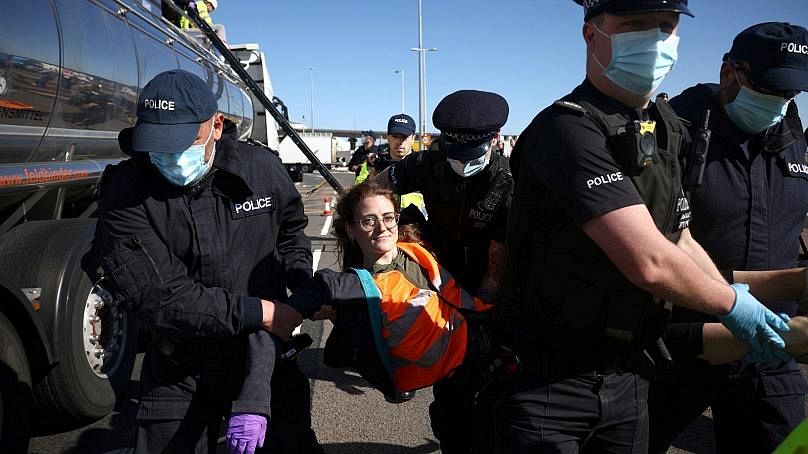In pictures: Here are some of 2021's most memorable moments for the environment
From landmark climate cases to international conferences, let's take a look back at the last 12 months.
This year felt like a tipping point for the environment. With stark warnings about global warming and big political ambition, the climate crisis was often in the headlines in 2021.
There have been tough times this year as heatwaves, hurricanes and fires caused problems around the world. But among these harsh realities, there have been moments that sparked hope for the future. It might not seem like it but the last 12 months were also full of wins for planet Earth.
So, from extreme weather events across Europe this summer to the closing moments of COP26, here are some of the most memorable environmental moments we've covered in 2021.
7. A year of extreme weather
The United Nations weather agency reported in September that weather disasters are striking the world four to five times more often and causing seven times more damage than in the 1970s.
The news came after a disaster-filled summer where the US saw powerful hurricanes and drought while Europe was hit by extreme flooding and wildfires across the Mediterranean. Heatwaves spread across the planet too, with Europe also recording its highest ever temperature in Sicily in August.
World-leading scientists said that the floods that ravaged Germany and Belgium in July has been made up to nine times more likely by warming due to human activity.
6. IPCC report is 'code red for humanity'
In August, the Intergovernmental Panel on Climate Change (IPCC) published its latest study, concluding that humans' damage to the planet is a "statement of fact." The report's authors said that Earth's temperature will almost definitely reach the critical threshold of 1.5°C within the next 20 years at the latest with the Paris Agreement goal of 1.5°C is said to be "beyond reach."
UN Secretary-General António Guterres called the report "code red for humanity" warning that there was "no time for delay and no room for excuses."
5. Big news for biodiversity
In June the UNEP announced that nearly 17 per cent of the planet was now covered by a conservation plan. It was a target first set in 2011 at the Aichi summit in Japan where more than 190 countries came together to decide what to do about biodiversity loss.
This year the largest marine protected area in Europe and the North Atlantic was created in Portugal’s Madeira archipelago. The Selvagens Islands Nature Reserve covers 2677km² and by the end of the decade, the EU plans to have 30 per cent of its seas classified as protected areas.
But increasing the amount of protected land alone isn't enough. One million plant and animal species are now at risk of extinction. With the second half of the UN's biodiversity conference taking place in 2022, world leaders need to come up with an “ambitious and transformative” plan to prevent nature loss.
4. The US rejoins the Paris Agreement
At the start of the year, the United States officially rejoined the Paris Agreement after becoming the first to leave the international climate accord in November 2020.
The reversal of the Trump administration's decision came on day one of Joe Biden's presidency. The worldwide agreement, which was negotiated while Biden was Vice President, requires countries to create emissions targets aimed at keeping global warming below 1.5°C.
3. Keeping the dream of 1.5°C alive
After going into overtime at COP26, world leaders kept the dream of limiting global warming to 1.5C alive - but only just. The final hours saw debates discussions and arguments about fossil fuels, finance and the specific wording of the text.
Keeping below 1.5°C is a goal that countries on the front lines of the climate crisis say is essential for their survival, particularly island nations vulnerable to sea-level rise.
Leaders, environmental groups and activists called the Glasgow Climate Pact a “compromise”. And critics said that it showed a lack of leadership from some of the biggest polluters on the planet.
2. An incredible year for activism
From the weird to the wonderful, activists turned out in force to protests this year. Outside of official proceedings at COP26 there were some incredible performances and costumes being used by campaign groups such as Extinction Rebellion, to cause a stir in the name of climate justice.
Insulate Britain also blocked sections of the UK’s busiest motorways, as well as the port in Dover. They were asking the government to start the most cost-effective means of reducing our carbon emissions, by insulating the nation's housing stock.
1. Landmark legal case sees Shell ordered to slash emissions
Back in May, a landmark legal case saw Shell ordered to cut its CO2 emissions by 45 per cent by 2030. A panel of judges in a lower court in The Hague ruled that the company's policies on the matter were too vague
Environmental charity ClientEarth told us that the case could pave the way for people beyond the Netherlands to target more polluters that are putting profits before people's lives.
And Milieudefensie voor Veranderaars are encouraging others to do just that after publishing a DIY guide during COP26 on how to take a big fossil fuel company to court.











